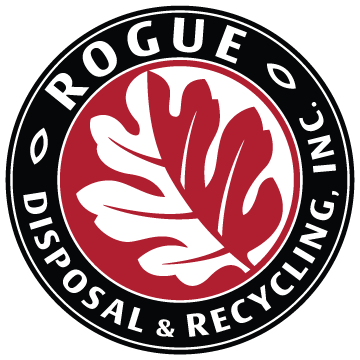Turning yard debris into yard-friendly compost
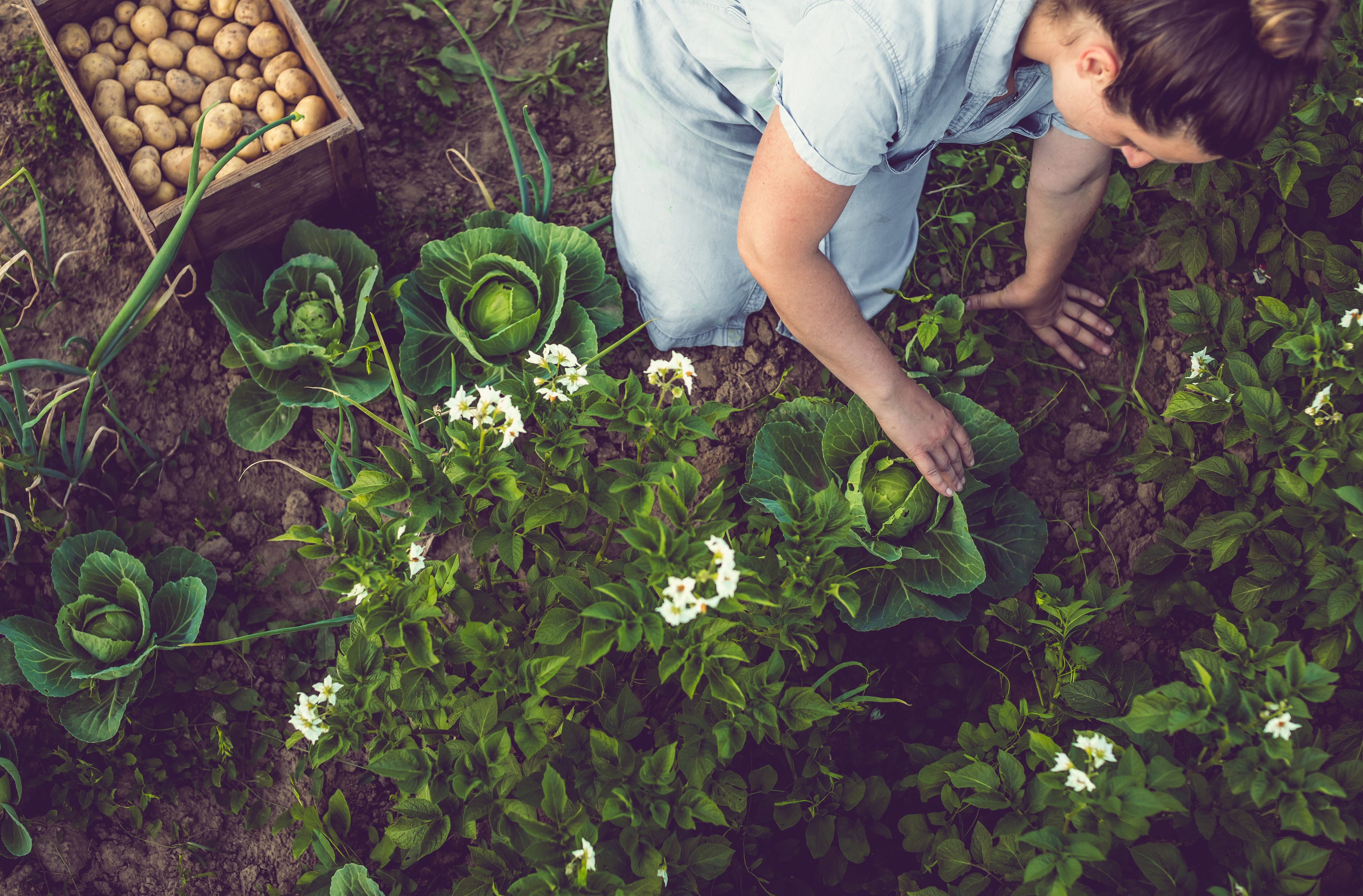
Quick, what’s one of the best ways to maintain a lush yard or garden while improving soil health, increasing water retention and supplying micronutrients? Compost! But not just any compost, Rogue Compost — produced from yard debris collected right here in the Rogue Valley.
Putting yard debris to good use
In 2002, Rogue Disposal & Recycling created a facility near the Dry Creek Landfill to turn the leaves, grass clippings, deadheaded flowers and other natural plant materials we collect curbside in your green-lid yard debris recycling carts into nutrient-rich compost.
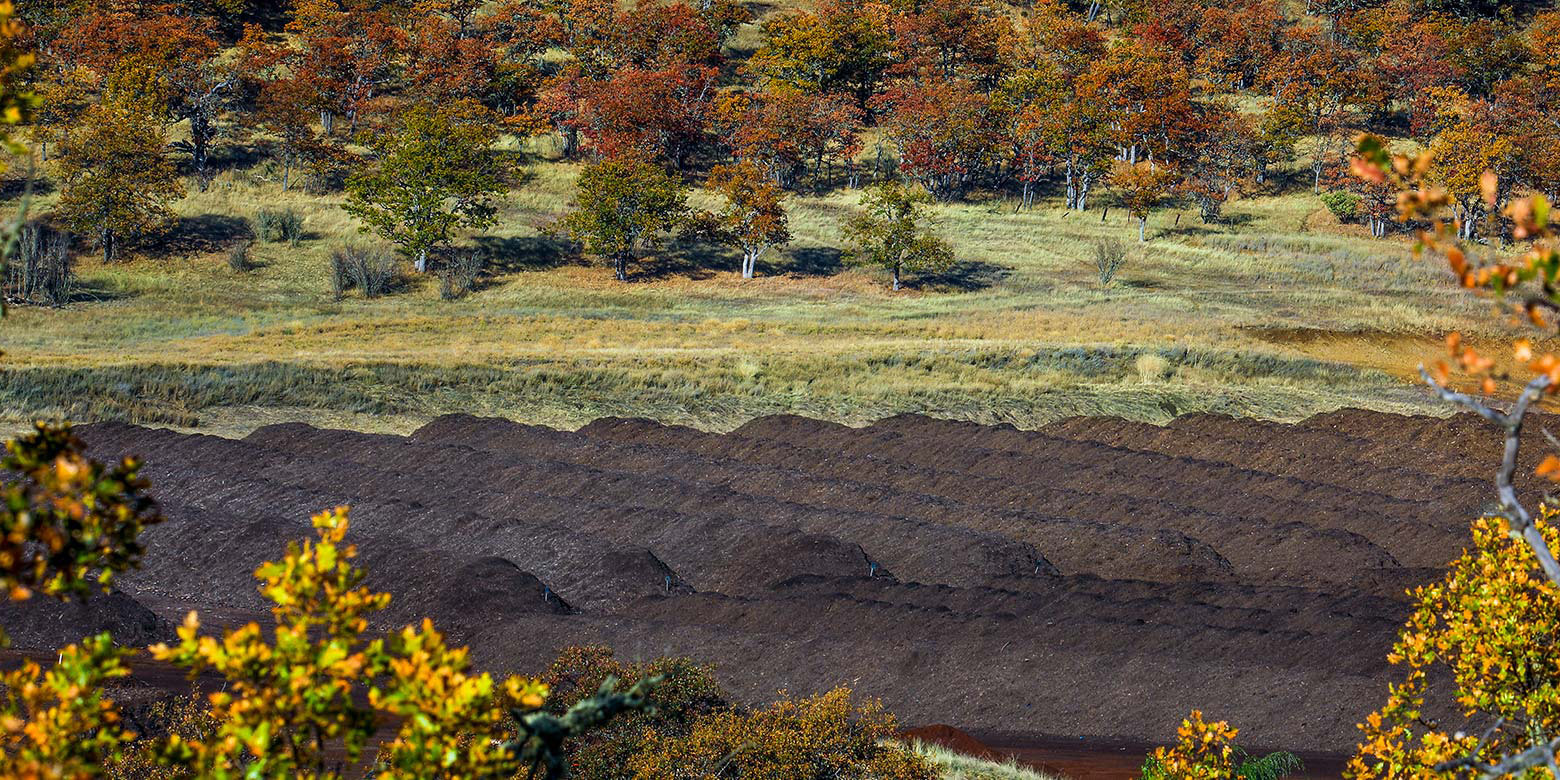
So how do we go from yard debris to all-natural compost?
Once the collected yard materials come in, we remove contaminants and grind the materials to a uniform size.
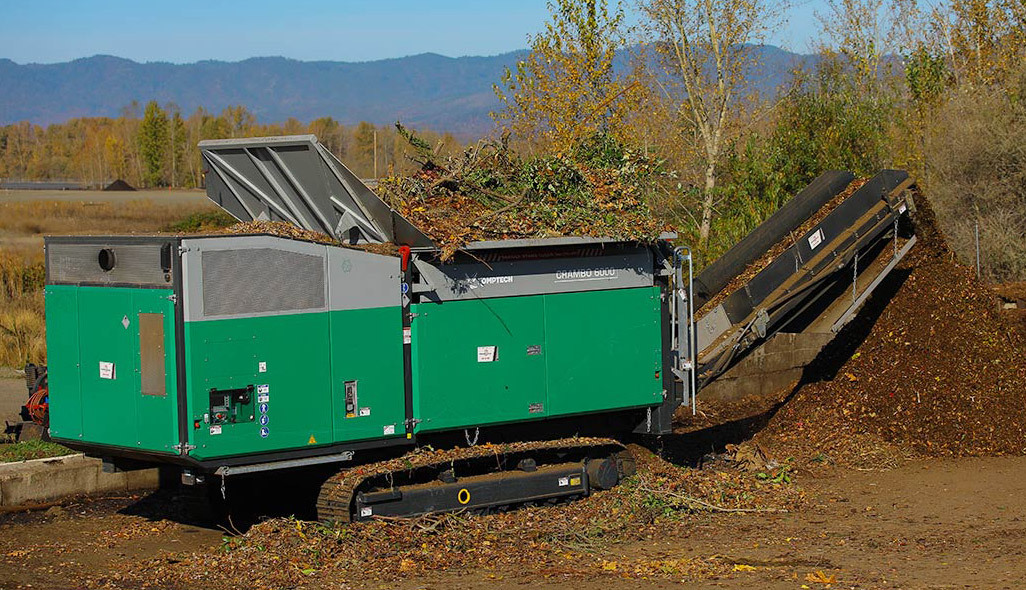
Next, for 12 to 18 months, we add water, turn the mixture, monitor the temperature and other variables … and repeat. When the compost is ready, we screen it again to remove any remaining woody debris or contaminants.
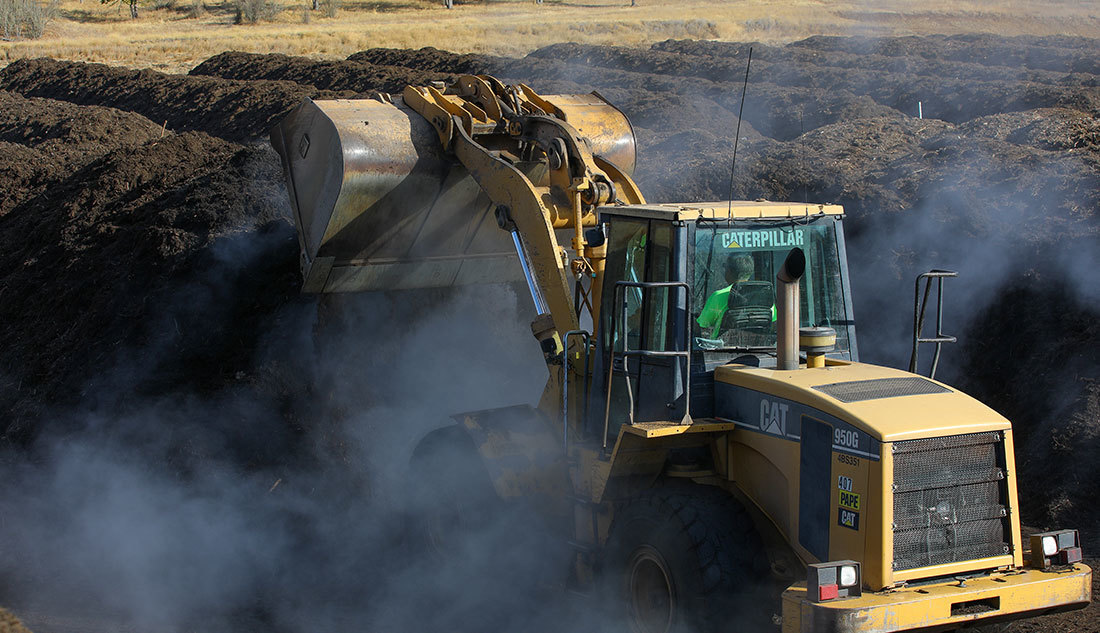
Depending on the type of compost, some is bagged (for sale at the Transfer Station and area retailers) and some is available for sale in bulk (for pickup or delivery) at the Transfer Station.
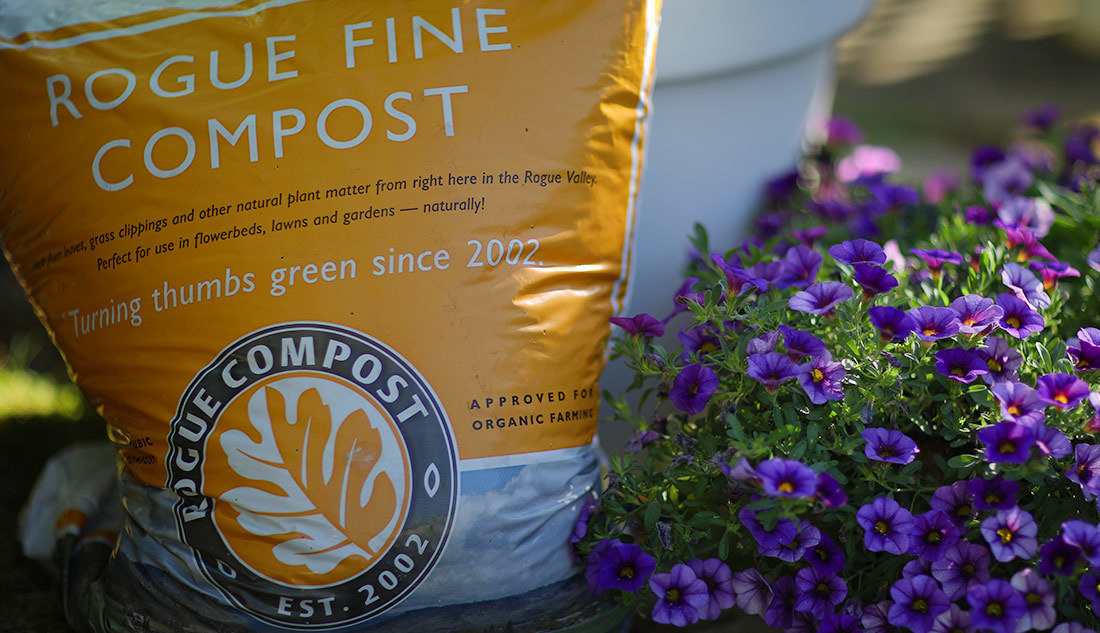
The best compost for here is the compost from here
We may be partial, but since Rogue Compost comes from the raked leaves, mowed grass and other plant matter grown right here in southern Oregon, we think it’s the best compost for your gardening needs. There are six different types to choose from, with one that’s right for your vegetable garden, flower bed or lawn. We can also create a custom compost blend or add your fertilizer into our basic soil mix. And if you have a compost question, the answer is just a mouse-click away. And with every wheelbarrow full of Rogue Compost you use, remember that you’re also helping close the yard debris loop — plants from your yard become Rogue Compost, which is then used in your yard to grow more plants. It’s a win-win for the environment!
Share This
